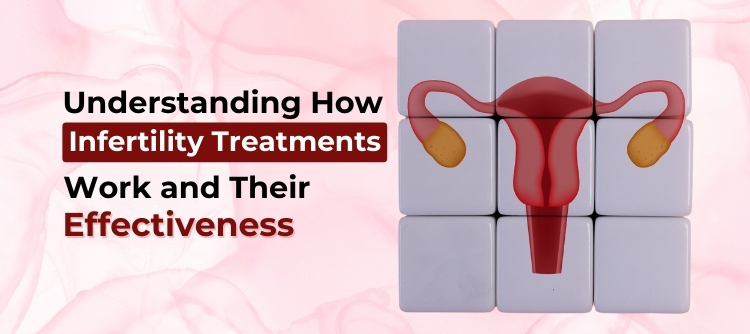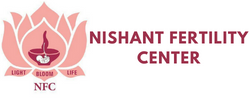Understanding How Infertility Treatments Work and Their Effectiveness

Infertility is a challenging condition that affects millions of individuals and couples worldwide. For many, the journey to conception can feel overwhelming, leading them to seek various treatments to improve their chances of becoming parents. At Nishant Fertility Centre, a trusted infertility treatment in Jaipur provider, we aim to offer compassionate care and effective solutions to help you navigate through this journey. This blog will explore how infertility treatments work, the different options available, and their effectiveness in helping individuals achieve their dream of having a family.
What is Infertility?
The failure to conceive after a year of consistent, unprotected sexual activity is known as infertility. It can affect both men and women and can arise from a range of issues, such as hormonal imbalances, structural problems, or lifestyle factors. In some cases, infertility is unexplained, which can make diagnosis and treatment more complex.
For couples facing infertility, there is hope. Advances in reproductive medicine have led to the development of several treatments that can significantly improve the chances of conception. But how do these treatments work, and what makes them effective?
Types of Infertility Treatments
Infertility treatments are designed to address the specific causes of infertility and enhance the chances of conception. The following are a few of the most common treatments:
1. Ovulation Induction (OI)
In cases where infertility is due to irregular or absent ovulation, doctors may recommend ovulation induction. Medication is used in this procedure to encourage the ovaries to release and create eggs. The goal is to increase the number of eggs available for fertilization, improving the chances of conception. Ovulation induction is often used in combination with intrauterine insemination (IUI).
Effectiveness: Ovulation induction has a relatively high success rate, especially when combined with other treatments like IUI. However, the success of this treatment depends on the woman’s age, overall health, and the cause of infertility.
2. Intrauterine Insemination (IUI)
During ovulation, IUI entails injecting specially prepared sperm straight into the uterus. This procedure increases the chances of sperm reaching the egg, improving the likelihood of fertilization. IUI can be used in conjunction with ovulation induction medications or when there are issues such as low sperm count or mild male infertility.
Effectiveness: IUI is effective for couples with unexplained infertility or minor male infertility. The success rate varies depending on factors like age, sperm quality, and the use of ovulation induction medications.
3. In Vitro Fertilization (IVF)
One of the most well-known fertility treatments, IVF involves extracting eggs from the ovaries, fertilizing them with sperm in a laboratory, and then transferring the resulting embryos into the uterus. IVF is typically recommended for individuals with severe infertility issues, such as blocked fallopian tubes, endometriosis, or male factor infertility.
Effectiveness: IVF offers the highest success rates among infertility treatments, especially for couples facing significant fertility challenges. The success of IVF depends on various factors, including the age of the woman, the quality of the eggs and sperm, and the overall health of the patient. IVF is available at many reputable clinics, including IVF centers in Jaipur, providing specialized care for a range of fertility concerns.
4. Egg Freezing
Women can store their eggs for later use at a younger age by freezing them. This treatment is ideal for women who wish to delay pregnancy due to career, personal, or medical reasons. Once the eggs are frozen, they can be thawed and fertilized with sperm when the woman is ready to conceive.
Effectiveness: The success rate of egg freezing depends largely on the age at which the eggs are frozen, with younger women generally having a higher chance of success when using frozen eggs later in life.
5. Donor Eggs and Sperm
For individuals who cannot conceive using their own eggs or sperm, using a donor’s eggs or sperm is an option. Donor eggs and sperm are often used in conjunction with IVF to increase the chances of pregnancy, especially in cases of male or female infertility.
Effectiveness: Donor egg IVF has a higher success rate for women with poor egg quality or those over 40. The use of donor sperm can also help address male infertility, ensuring a better chance of fertilization and pregnancy.
6. Surrogacy
Surrogacy involves another woman carrying a pregnancy for the intended parents. This option is often used when the woman cannot carry a pregnancy due to medical reasons or other complications. Surrogacy can be either traditional, where the surrogate is the biological mother, or gestational, where the embryo is created via IVF and implanted into the surrogate.
Effectiveness: Surrogacy can be an effective solution for individuals or couples who cannot conceive or carry a pregnancy to term. The surrogate’s age, health, and the fertility clinic’s level of experience all affect success rates.

How Do Infertility Treatments Work?
Infertility treatments aim to overcome the barriers to conception by addressing the root causes of infertility. Here’s how they work:
• Medications: Fertility medications stimulate the ovaries to produce eggs or regulate hormone levels to enhance fertility. They work by correcting hormonal imbalances or encouraging egg maturation.
• Surgical Interventions: In some cases, surgery may be required to correct anatomical issues such as blocked fallopian tubes or endometriosis.
• Laboratory Techniques: In IVF and ICSI (intracytoplasmic sperm injection), sperm and eggs are handled in a lab environment to increase fertilization chances.
• Assisted Reproductive Technologies (ART): ART includes IVF, egg freezing, and embryo transfer. These techniques bypass natural fertilization by using advanced medical interventions to help achieve pregnancy.
Related- Understanding Unexplained Infertility: A Comprehensive Guide
Effectiveness of Infertility Treatments
A number of variables affect how effective infertility treatments are:
1. Age: Younger women typically have a higher success rate with infertility treatments, particularly IVF. The quality and quantity of eggs decrease with age, affecting treatment outcomes.
2. Health Conditions: The success of infertility treatments also depends on underlying health conditions, such as polycystic ovary syndrome (PCOS), endometriosis, or male factor infertility.
3. Treatment Choice: Some treatments have higher success rates than others. For example, IVF has a higher success rate compared to IUI, especially for women with severe infertility issues.
4. Lifestyle Factors: Factors such as stress, diet, and exercise can impact the success of fertility treatments. Maintaining a healthy lifestyle can improve outcomes.
Conclusion
Infertility can be a deeply emotional and challenging journey, but it doesn’t have to be one faced alone. At Nishant Fertility Centre, we provide personalized care and advanced infertility treatments to help you achieve your goal of starting a family. Whether you are exploring infertility treatment in Jaipur or looking for guidance on IVF, our expert team is here to support you every step of the way.
The success of infertility treatments depends on a variety of factors, but with the right approach, guidance, and treatment plan, the dream of having a child can become a reality. Let us help you navigate this journey with the best possible care and expertise available.
